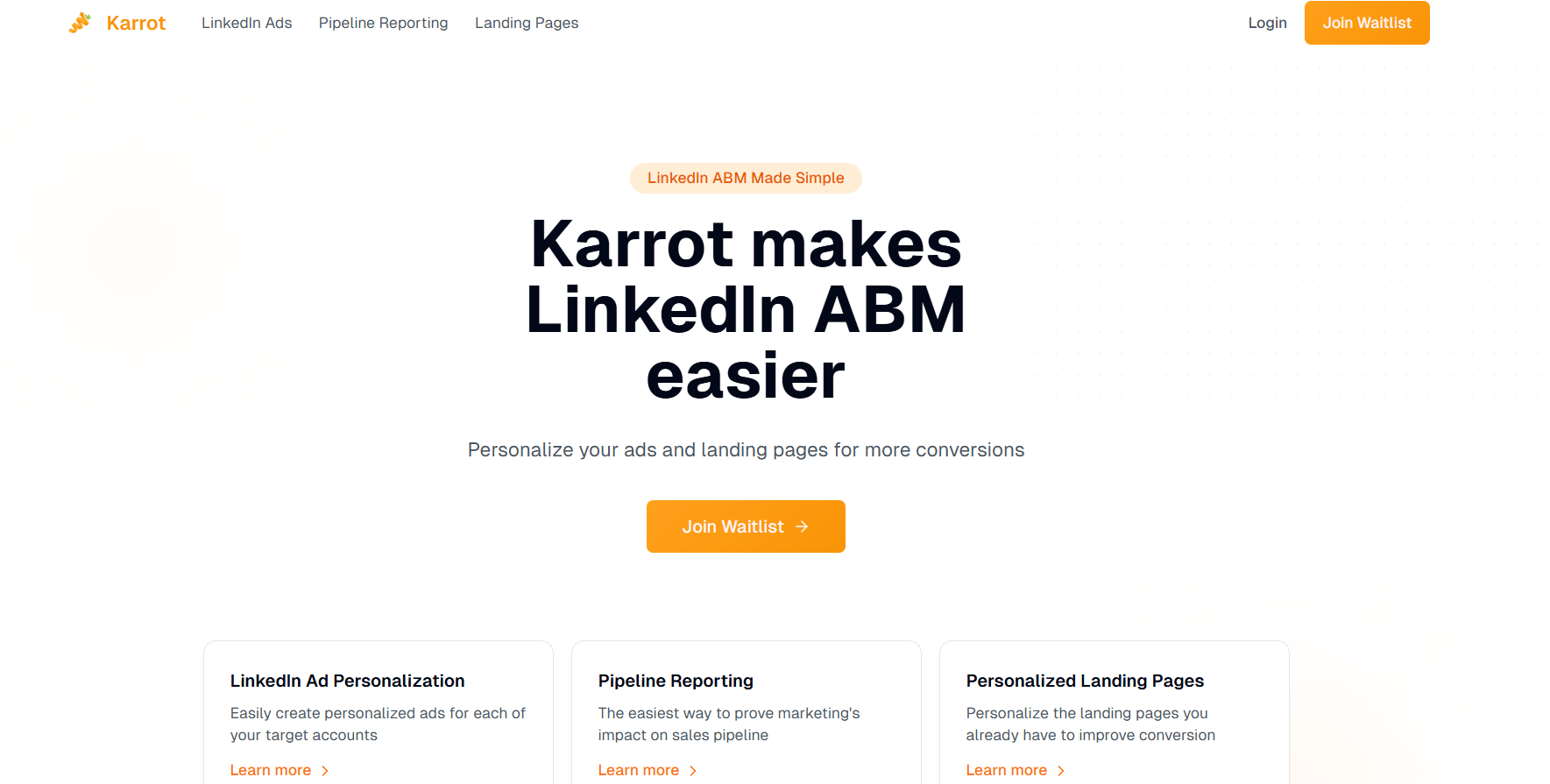AI Marketing Strategies for Maximum ROI in 2025: The Data-Driven Playbook for CMOs
Marketing teams that adopt AI solutions are reporting an average return on investment of 300% in 2025, according to recent industry research from Cubeo AI. Yet despite these compelling numbers, many CMOs still struggle to identify which AI marketing strategies will deliver maximum ROI for their specific business context. The difference between AI marketing success and failure goes beyond just adopting the technology; it’s about implementing the right strategies with precision and purpose.
This comprehensive playbook cuts through the AI marketing hype to deliver actionable strategies that drive measurable business outcomes. Whether you’re leading marketing operations at a growth-stage SaaS company or steering digital transformation at an enterprise organization, the frameworks and tactics outlined here will help you achieve superior returns on your AI marketing investments.
TABLE OF CONTENTS:
- Key Takeaways
- The ROI Reality: Why AI Marketing Delivers Maximum Returns in 2025
- Strategic AI Marketing Frameworks for Maximum ROI
- High-Impact AI Marketing Strategies Driving Results
- Measuring and Optimizing AI Marketing Performance
- Overcoming Common AI Marketing Challenges
- Your Strategic Roadmap to AI Marketing ROI Success
- Related Video
Key Takeaways
-
AI Is Now the Performance Baseline, Not a Bonus: In 2025, AI has shifted from a competitive edge to a competitive requirement. Research from BCG and McKinsey shows that AI-driven marketers achieve 1.5× higher revenue growth and 1.4× greater ROI over three years—proof that AI is now central to marketing performance, not an experimental add-on.
-
Precision, Personalization, and Prediction Drive ROI AI marketing maximizes returns by reducing acquisition costs through precision targeting, increasing conversions with large-scale personalization, and boosting efficiency via predictive budget optimization.
-
Satisfaction and Confidence Are Rising Rapidly: According to Accenture data, 74% of companies say AI and automation investments met or exceeded expectations, signaling that businesses are realizing measurable performance gains—not just theoretical potential.
-
High-ROI Frameworks Focus on Strategic Alignment: Top-performing organizations use structured frameworks like the Revenue Velocity Matrix, aligning AI use cases with growth objectives.
-
The 10/20/70 Rule Ensures Sustainable Results: BCG’s 10/20/70 rule—10% tech, 20% data infrastructure, 70% people and process—illustrates that AI success depends more on organizational change and adoption than tool choice.
-
Real-World Case Studies Prove the Payoff: A software company drove a 64% improvement in MQL-to-opportunity conversions and saw a 187% spike in target account engagement through ABM tool Karrot.ai that uses AI-powered hyper-personalization.
-
Smarter Measurement Unlocks Continuous Optimization: High-performing teams use AI-powered multi-touch attribution and closed-loop systems to link every marketing action directly to revenue outcomes—enabling real-time budget and creative optimization with 25–40% better campaign performance.
-
Common Barriers Can Be Turned into Accelerators: Challenges like poor data quality, talent gaps, and integration issues are best solved through unified data governance, upskilling existing teams, API-first, integration-ready AI tools, and human-in-the-loop oversight for brand safety.
The ROI Reality: Why AI Marketing Delivers Maximum Returns in 2025

AI has become essential for competitive performance. Leading companies leveraging AI in marketing achieve 1.5× higher revenue growth and 1.4× higher returns on invested capital over three years compared to their peers, as reported by research citing BCG and McKinsey.
What’s driving these exceptional returns? AI marketing strategies excel at three critical functions that directly impact ROI: precision targeting that reduces acquisition costs, personalization at scale that increases conversion rates, and predictive analytics that optimize budget allocation in real-time. Unlike traditional marketing approaches that rely on broad demographic segments and static campaigns, AI enables dynamic optimization based on individual customer behavior patterns and preferences.
“The most successful marketing organizations aren’t just using AI as a tool. They’re building AI-first marketing operations that continuously learn, adapt, and optimize for maximum ROI.” – Leading Digital Marketing Strategist
The confidence in AI marketing investments is also growing stronger. According to Plivo’s research citing Accenture, 74% of organizations report that their recent investments in generative AI and automation met or exceeded expectations. This high satisfaction rate indicates that businesses are not only seeing theoretical benefits but experiencing tangible, measurable improvements in their marketing performance.
Strategic AI Marketing Frameworks for Maximum ROI
Successful AI marketing requires more than the adoption of isolated tools. It demands a strategic framework that aligns technology investments with business objectives. The most effective approach follows what industry leaders call the “Revenue Velocity Matrix,” which prioritizes AI initiatives based on their potential to accelerate revenue generation and improve capital efficiency.
The foundation of any high-ROI AI marketing strategy begins with data unification. Companies achieving the highest returns invest heavily in creating a single source of truth that connects customer touchpoints across all channels. This unified data foundation enables AI algorithms to generate more accurate predictions and deliver more personalized experiences, directly contributing to improved conversion rates and customer lifetime value.
| AI Marketing Strategy | Implementation Timeline | Expected ROI Range | Primary Impact Area |
|---|---|---|---|
| Predictive Lead Scoring | 4-6 weeks | 200-350% | Sales Conversion |
| Dynamic Content Personalization | 6-8 weeks | 250-400% | Engagement & Revenue |
| AI-Powered Campaign Optimization | 8-12 weeks | 300-500% | Ad Spend Efficiency |
| Autonomous Customer Journey Mapping | 12-16 weeks | 350-600% | Customer Lifetime Value |
The resource allocation strategy that consistently delivers results follows the “10/20/70 rule” established by consulting firms like BCG: 10% of AI marketing budget should focus on algorithms and technology platforms, 20% on data infrastructure and integration, and 70% on people, processes, and organizational change management. This distribution ensures that AI tools are properly implemented and adopted across marketing teams.
High-Impact AI Marketing Strategies Driving Results
The most successful AI marketing implementations focus on strategies that deliver immediate, measurable impact while building long-term competitive advantages. Hyper-personalization leads this category, enabling marketers to create individualized experiences at scale without proportional increases in cost or complexity.

Consider how a software company transformed its ABM strategy. They used Karrot.ai to generate 1,000 LinkedIn leads with its powerful AI-driven hyper-personalization capabilities. This resulted in a 64% improvement in MQL-to-opportunity conversion and an 187% increase in target account engagement.
For marketing leaders looking to implement similar strategies, the key lies in starting with high-impact, measurable use cases rather than attempting a comprehensive AI transformation immediately. AI marketing agents can serve as an excellent entry point, automating specific marketing functions while providing clear ROI metrics to justify expanded implementation.
Measuring and Optimizing AI Marketing Performance
The measurement framework for AI marketing success extends beyond traditional metrics to include velocity indicators and predictive performance measures. Revenue attribution becomes more sophisticated when AI enables multi-touch attribution modeling that accurately assigns credit across complex customer journeys spanning multiple channels and touchpoints.
Advanced measurement approaches focus on three core areas: operational efficiency gains, revenue acceleration metrics, and predictive accuracy improvements. Operational efficiency typically manifests as reduced manual work hours, faster campaign deployment times, and improved resource allocation. Revenue acceleration shows up in shorter sales cycles, higher conversion rates, and increased average deal sizes. Predictive accuracy improvements demonstrate the AI system’s growing sophistication in forecasting customer behavior and optimizing marketing spend.
Real-time optimization capabilities distinguish high-performing AI marketing strategies from basic automation. The most successful implementations continuously adjust targeting parameters, content variations, and budget allocation based on performance data. This dynamic optimization approach can improve campaign performance by 25-40% compared to static AI implementations that require manual adjustments.
For organizations serious about maximizing their AI marketing ROI, implementing closed-loop measurement systems becomes critical. These systems connect marketing activities directly to revenue outcomes, enabling precise calculation of incremental lift generated by AI-driven initiatives. Comprehensive AI marketing strategies incorporate these measurement frameworks from the initial planning stages rather than attempting to retrofit tracking capabilities later.
Overcoming Common AI Marketing Challenges

Despite the proven ROI potential, many organizations encounter predictable obstacles when implementing AI marketing strategies. Data quality issues are the primary challenge, as fragmented customer data hinders AI algorithms from producing accurate insights and predictions. The solution requires dedicated investment in data unification platforms and governance processes that ensure consistent, high-quality data flows across marketing systems.
Talent gaps present another significant barrier, particularly for mid-market companies competing with tech giants for AI expertise. However, the most successful organizations focus on upskilling existing marketing teams rather than attempting to hire expensive AI specialists. This approach builds internal capability while maintaining marketing domain knowledge that external consultants often lack.
Integration complexity can derail AI marketing initiatives when new tools don’t connect effectively with existing marketing technology stacks. The antidote involves selecting AI solutions that offer robust API connectivity and pre-built integrations with popular platforms like Salesforce, HubSpot, and Google Analytics. This integration-first approach ensures that AI capabilities enhance rather than disrupt existing marketing workflows.
Brand safety and content quality concerns also surface as organizations scale AI-generated content. Establishing human oversight protocols and brand guidelines for AI systems prevents potential reputation risks while maintaining the efficiency benefits of automated content creation. The most effective approach implements “human-in-the-loop” systems that combine AI efficiency with human judgment for quality control.
Your Strategic Roadmap to AI Marketing ROI Success
Building a successful AI marketing program requires a phased approach that balances quick wins with long-term strategic development. The most effective implementation roadmap begins with pilot programs focused on specific, measurable use cases where AI can demonstrate clear value within 90 days.
Phase one should prioritize low-risk, high-impact applications, such as predictive lead scoring or basic personalization engines. These implementations provide immediate ROI while building organizational confidence in AI capabilities. Success in this phase creates momentum for more ambitious initiatives in subsequent phases.
Phase two expands AI implementation to multi-channel campaign optimization and advanced customer segmentation. This stage typically occurs 6-12 months after initial deployment and builds on data infrastructure and team capabilities developed during the pilot phase. Organizations often see ROI improvements of 200-300% during this expansion phase.
Phase three introduces sophisticated applications like autonomous campaign management and predictive customer lifetime value modeling. These advanced capabilities require mature data operations and experienced AI marketing teams but deliver the highest ROI potential, often exceeding 400% returns on investment.
For marketing leaders ready to begin this transformation, the critical first step involves conducting a comprehensive assessment of current marketing data quality, technology infrastructure, and team capabilities. This foundation assessment identifies the optimal starting point for AI implementation while highlighting areas requiring additional investment.
The AI marketing revolution is delivering unprecedented ROI opportunities for organizations willing to invest strategically in the right technologies, processes, and people. Companies that begin implementation now will capture significant competitive advantages as AI capabilities continue advancing throughout 2025 and beyond. To explore how AI marketing strategies can accelerate your organization’s growth and maximize ROI, get a free consultation with marketing experts who specialize in AI-driven transformation.
Related Video
For more insights and lessons about marketing, check out our Marketing School podcast on YouTube.





